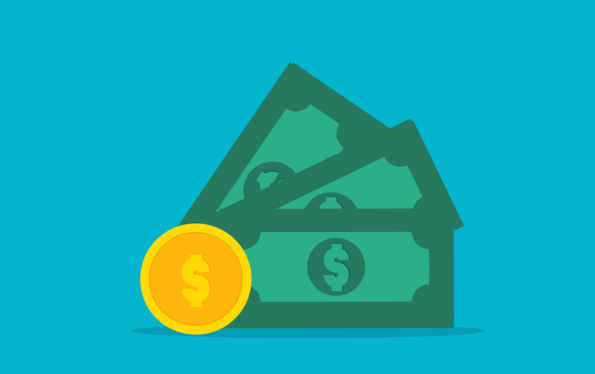There are lots of different types of loans out there. Student loans, auto loans, credit-builder loans, the list goes on and on. But the type of loan we’d like to focus on right now is called a personal loan.
Personal loans are any type of loan that is given out for a personal need. They can be used to pay for almost anything, including other loans. But let’s get into more detail and learn more about personal loans in Canada.
What is a Personal Loan?
Again, a personal loan is a type of loan that is given out for personal reasons. You can use personal loans for a variety of purposes. Whether you want to borrow a loan for home renovations, debt consolidation, or even a dream wedding – that’s exactly what personal loans are for.
When you borrow a personal loan, you are borrowing a fixed amount of money. This money may be borrowed from a financial institution like a bank, or a credit union, a loan company, a private lender, or even a pawn shop.
You will be expected to pay back the full amount borrowed, plus interest. The exact amount of interest you pay will depend upon the agreement between you and the lender.
Depending on the terms of the loan, there may also be other applicable fees. Always be sure to read the fine print carefully when signing for a loan to ensure that you understand all fees associated with it.
When paying a loan, you will pay installments, or regular payments. In most cases, these will be monthly. You will continue to make monthly payments until your loan is paid back in full.
Types of Personal Loans
There are two different types of personal loans; secured and unsecured. A secured loan is one in which the loan is secured against some type of collateral. For example, your loan may be secured against a personal asset like a vehicle.
In the event that you fail to pay back your loan, the lender has the right to seize whatever it is you put up for collateral.
Unsecured loans, then, are where you do not have to put up collateral for your loan.
Of course, you might wonder why anyone would prefer a secured loan over an unsecured loan. Well, the main benefit of secured loans is a lower interest rate. Secured loans are considered less risky for the bank, so they generally offer these at a lower interest rate than unsecured loans.
Furthermore, people with poor credit may have an easier time getting a secured loan than an unsecured one. As long as the lender has something as collateral, there’s less risk that they will lose on their loan to you.
How do you get a Personal Loan?
There are multiple places you can go to get a personal loan. You can apply at your local financial institution or bank, at a credit union, or with a private or online lender. In order to obtain a loan, you’ll need to submit an application.
While all lenders will differ in what they require from you, most lenders will require a minimum of proof of a permanent address in Canada, a bank account, and a regular income.
Most lenders will also run a credit check before they approve you for a loan. This is to verify that they can trust you to repay the loan. The better your credit, the higher the approval rate.
With that being said, there are some lenders out there that deal specifically with poor credit, so if this is a concern for you, you might want to search for a lender that does work with poorer credit scores.
Your credit score will not only impact whether or not you can get a loan but also what type of loans are available to you and what your interest rate will be.
Once you have been approved for your loan and have agreed upon any fees and interest rates, your lender will send the money to you.
Depending on how much you are borrowing, personal loans can be provided in cash, by e-transfer, via prepaid card, or deposited directly into your bank account.
What if I can’t pay my loan back on time?
If you’re going to take out a personal loan, you want to be certain that you have the funds and ability to pay it back. Failing to pay back your loan on time can result in serious consequences.
Depending on the agreement with the lender and the situation at hand, if you fail to make your payments on time the lender can:
- Take possession of something you own (if the loan is secured)
- Request the full amount be paid at one time
- Report missed payment to the credit bureau, thereby negatively affecting your credit
- Charge you extra fees
- Take you to court or sue you for the unpaid fees.
If you are unable to make a payment for one month, contact your lender directly and explain your situation. Many lenders will be patient and understanding as long as you are upfront and honest with them.
If you are having trouble making your monthly payments on a regular basis, it’s best to speak with a financial advisor to see what options you have available to you to make payments easier.
How much can I borrow?
The amount that you can borrow for a personal loan will depend on the lender you choose. Personal loans can range anywhere from a few thousand dollars, to several hundred thousand dollars.
Of course, the amount that you are allowed to borrow will depend on your financial situation and your credit score.
When selecting how much you should borrow, it’s important to remember that you aren’t just paying back the borrowed amount. You also have to pay back any associated fees, as well as any incurred interest.
So whatever you borrow, be sure that you can pay it back. You don’t want to overextend your finances and miss monthly payments.
What is Loan Insurance?
When obtaining a loan, loan insurance is not a requirement. With that being said, some people do like to obtain insurance for their own protection. As we all know, life is unpredictable.
Illness, accidents, and loss of job can happen at any time. If it does, do you have a plan for making payments on your loan? That’s what loan insurance is for.
In the case of an emergency, loan insurance can help to make sure your loan payments are made on time so that even during rough times, your credit is not affected by missed payments.
If you are interested in purchasing loan insurance, speak to the provider of your loan. They cannot add this to your account without your permission, but most lenders will offer it to you.
The cost of loan insurance can vary depending on numerous factors including your credit score, who’s providing your loan, and how much your loan is for.
In conclusion, a personal loan is something you can obtain from a lender to help you pay for personal interests or debts. If you are going to borrow a personal loan, you need to be confident in your ability to pay it back.
If you are wavering, you may want to consider other options or consider adding loan insurance to your package.












